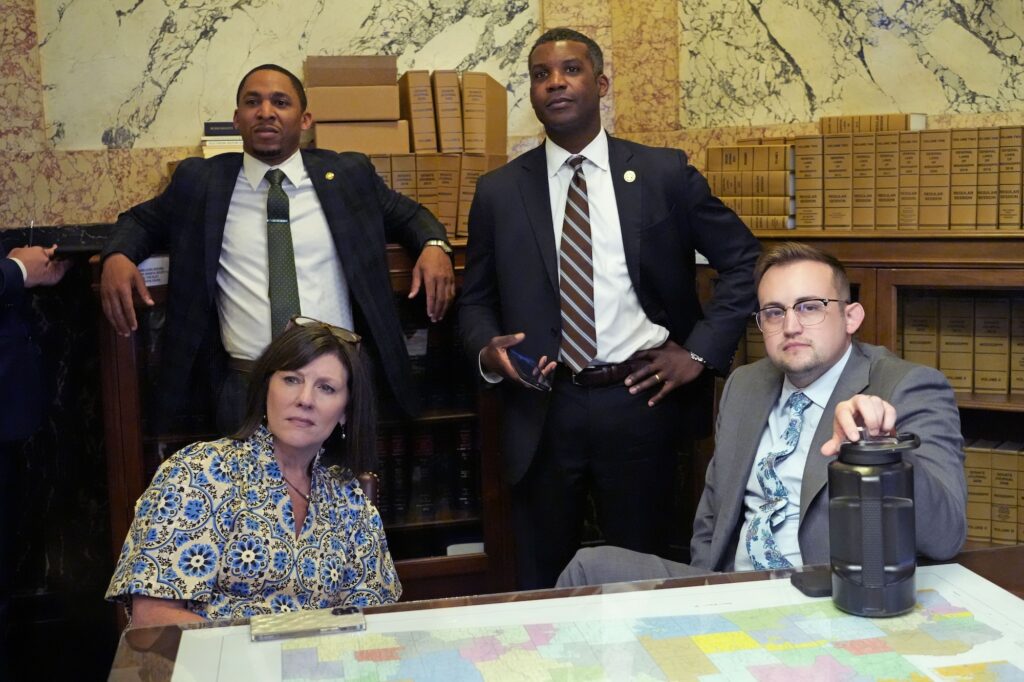Mississippi could soon have a medical cannabis research program at the University of Mississippi’s National Center for Cannabis Research and Education under a bill that earned approval in both chambers of the Legislature last month.
Senate Bill 2888 would create the Mississippi Medical Cannabis Research Program and allow the use of state, federal and private funds to pay for the research “related to the efficacy and potential health effects of various cannabis delivery methods, including vaporizing, ingesting, topical application and combustion,” the bill says.
Through various methods, scientists would study how medical cannabis can treat the medical conditions of patients who volunteer to participate in the program. UM’s current center tests cannabis on both humans and animals, but S.B. 2888 does not call for animal testing in its program.
“This sets up a research facility that’ll actually be able to take up cohorts of patients with similar disease structures, try to identify what therapies they’ve been on, the effectiveness of those, so that eventually down the road we can set parameters for recommendations of cannabis for patients with certain illnesses,” Sen. Kevin Blackwell said on the Senate floor on March 14 when introducing the bill.
UM’s current research partially focuses on developing pharmaceutical products that contain cannabis and can treat patients. The center does not have much information about how smoking cannabis can affect a patient, so S.B. 2888 would help improve knowledge on its effects.
UM already grows its own cannabis to research at the center, but a licensed Mississippi medical-cannabis cultivation company would provide cannabis samples for the medical-cannabis researchers to test, the bill says.
The legislation would require researchers to share their conclusions with medical professionals, lawmakers and the public. The bill would also create the Medical Cannabis Research Advisory Board to monitor and help with the research and its funding.
The Senate passed S.B. 2888 on March 14 by a 43-9 vote, and the House approved it on March 29 with a 106-10 vote.
The bill heads to Gov. Tate Reeves’ desk where he can choose to sign it into law, veto it or allow it to become law on a calendar deadline without his signature. If he vetoed it, the Legislature could override him with a two-thirds majority in both chambers.
988 Crisis Lifeline on Driver’s Licenses
The Suicide and Crisis Lifeline’s 988 phone number and website could soon be printed on Mississippians’ identification cards, driver’s licenses and learner’s permits under Senate Bill 2408. Faculty and students’ identification cards at state institutions of higher learning would also include the Crisis Lifeline number.
“This is a mental-health bill. If somebody is dealing with suicide or anything like that they will have it on the back of their card to call or get on that website to get help,” Rep. Lance Varner, R-Florence, said on the House floor on March 28.
The Senate passed S.B. 2408 on March 7 by a 51-0 vote and the House approved an amended version of the bill on March 28 with a 120-0 vote. The House’s amended version changed minor details in the wording of the bill. It heads back to the Senate for consideration. If the Senate approves the amended bill, it will head to Gov. Tate Reeves’ desk.
The Senate’s Medicaid Expansion Proposal
The Senate passed its version of Medicaid expansion using a strike-all amendment that replaced the text of the House’s bill with the Senate’s own less generous bill on March 28. The Senate version would cover significantly fewer working people than the House bill but could cost the state more because the Legislature would give up around $700 million in federal funds.
The Senate bill would cover people making up to 100% of the federal poverty level ($15,060 annually for one person or $31,200 for a family of four), down from the House bill which would have covered people making up to 138% of the federal poverty level ($20,120 annually for an individual or $40,056 for a family of four). The federal government covers at least 90% of the cost

Mississippi Senate Medicaid Committee Chairman Sen. Kevin Blackwell, R-Southaven, estimated that 80,000 Mississippians could qualify for Medicaid coverage under the Senate’s plan but suggested that only about 40,000 would actually enroll.
A person would have to work 120 hours a month in a job that does not provide health insurance to qualify for Medicaid coverage under the Senate’s plan, up from 80 hours in the House plan. Unlike the House plan, the Senate’s Medicaid expansion plan would require the U.S. Centers for Medicare and Medicaid Services to approve the work requirements for it to become law. Blackwell said no one will be eligible for expanded Medicaid if the federal government does not approve the requirements; the Biden administration has long opposed work requirements for Medicaid.
The bill has a few exceptions to the work requirement, including for people who have physical and mental disabilities, full-time students, people enrolled in workforce training and caregivers for a child, spouse or parent.
The Senate passed its amended Medicaid expansion bill by 36-16 vote on March 28. The amended bill heads back to the House for consideration, but the two chambers will likely need to work out their differences in conference.
Gov. Reeves has vowed to veto any Medicaid expansion bill, but both chambers have passed their own versions of the bill by veto-proof majorities.










